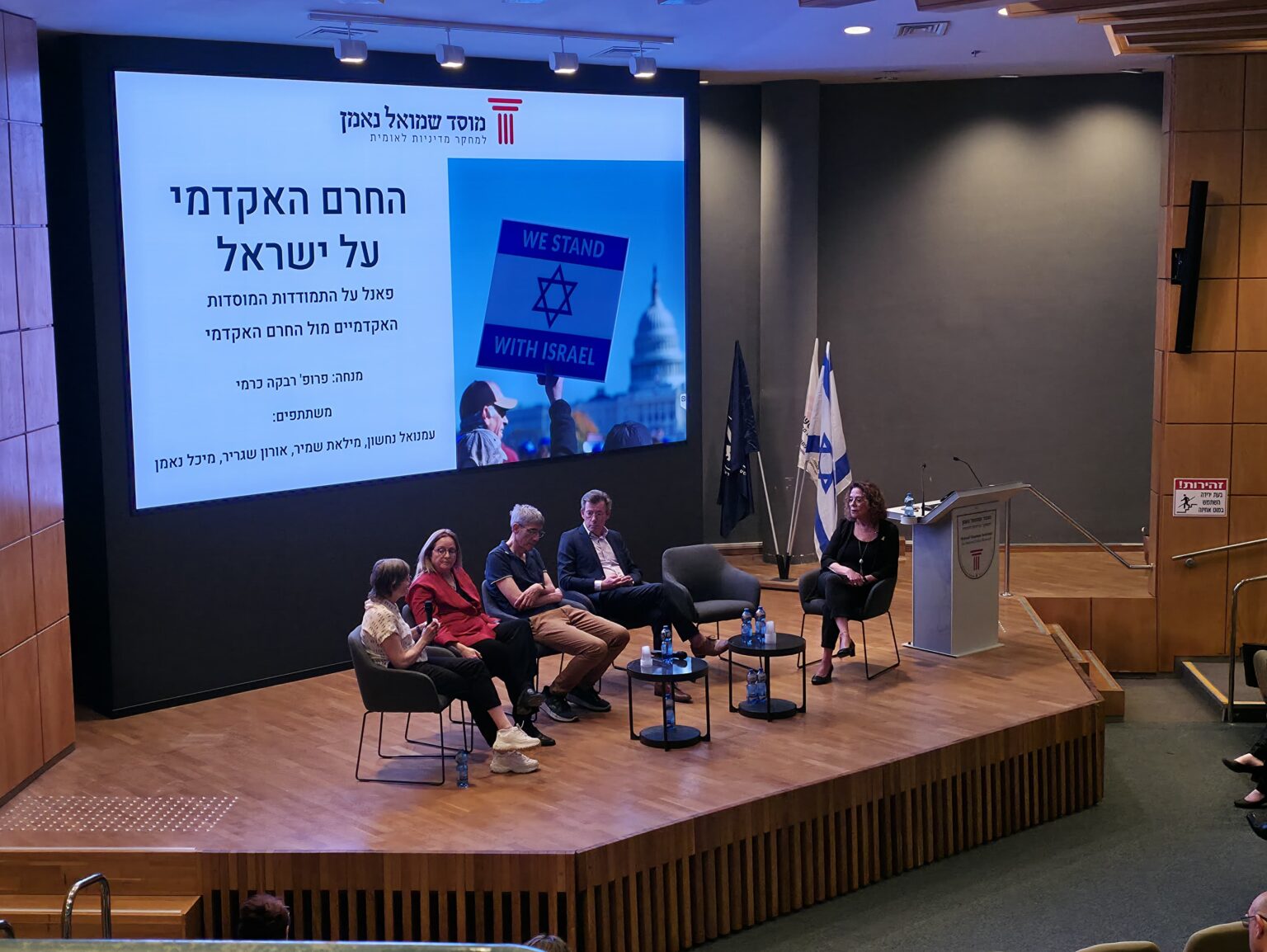On Wednesday, April 23, 2025—on the eve of Holocaust Remembrance Day—the Samuel Neaman Institute at the Technion held a first-of-its-kind symposium titled “Confronting the Academic Boycott.”
On a day dedicated to remembering the consequences of exclusion, incitement, and the loss of freedom, scholars, government representatives, international organizations, and students convened for an in-depth discussion on the escalating phenomenon of academic boycotts against Israel.
The event opened with a presentation by Prof. Boaz Golany that described the background of the BDS movement, its activities before and after Oct. 7, 2023, and countermeasures taken against the BDS by various organizations. Dr. Tsipy Buchnik then shared some findings from the Scholar Shield project—an initiative led by the Neaman Institute aimed at systematically mapping, analyzing, and formulating policy responses to academic boycotts and prof. Golany concluded his presentation with recommendations for action items by faculty, universities and government agencies.
Following this, Prof. Daniel Zajfman, Chairman of the Israel Science Foundation, presented updated data on the impact of recent events (October 2023) on international scientific collaborations.
The symposium featured two main panel discussions:
The first panel, moderated by Prof. Rivka Carmi, focused on how Israeli universities are addressing academic exclusion initiatives, with participation of several vice presidents for internation relations and the head of a task force established by the council of university presidents.
The second panel, led by Robert Singer (The Jewish Impact), examined the role of civil society organizations in countering the boycott internationally. Representatives from ADL, IAC, Combat Antisemitism, and Bashaar shared insights into advocacy efforts, partnerships, and field-level challenges.
In addition, Prof. Barak Medina from the Hebrew University delivered a lecture on some legal aspects of the academic boycott, addressing the tension between freedom of expression, institutional regulation, and academic freedom.
Throughout the day, video testimonies from Israeli and Jewish American researchers from leading US universities were screened, sharing firsthand experiences of exclusion and boycott attempts within the academic arena.
The symposium concluded with closing remarks from Prof. Shimon Marom and Prof. Golany, who emphasized the importance of continuing to research, document, and respond to the boycott attemptsto ensure that Israeli academia remains deeply engaged with the global academic community—for the benefit of Israel and the world at large.
Key quote from Prof. Boaz Golany:
“The fight against the academic boycott is not merely a matter of international or institutional relations—it strikes at the core of academia itself: openness, curiosity, and collaboration. If exclusion of scholars based on institutional affiliation becomes acceptable, the quality of research and education in Israel will suffer, with far-reaching consequences for all aspects of life.”
For interview coordination with Prof. Boaz Golany: [email protected]
The data collected as part of the Scholar Shield project is available on an interactive dashboard on the Samuel Neaman Institute website:
https://www.neaman.org.il/project/scholar-shield/
###
About the Samuel Neaman Institute
The Samuel Neaman Institute is a national public policy research think tank focused on harnessing higher education, science, engineering and technology for the prosperity and resilience of society and state.











